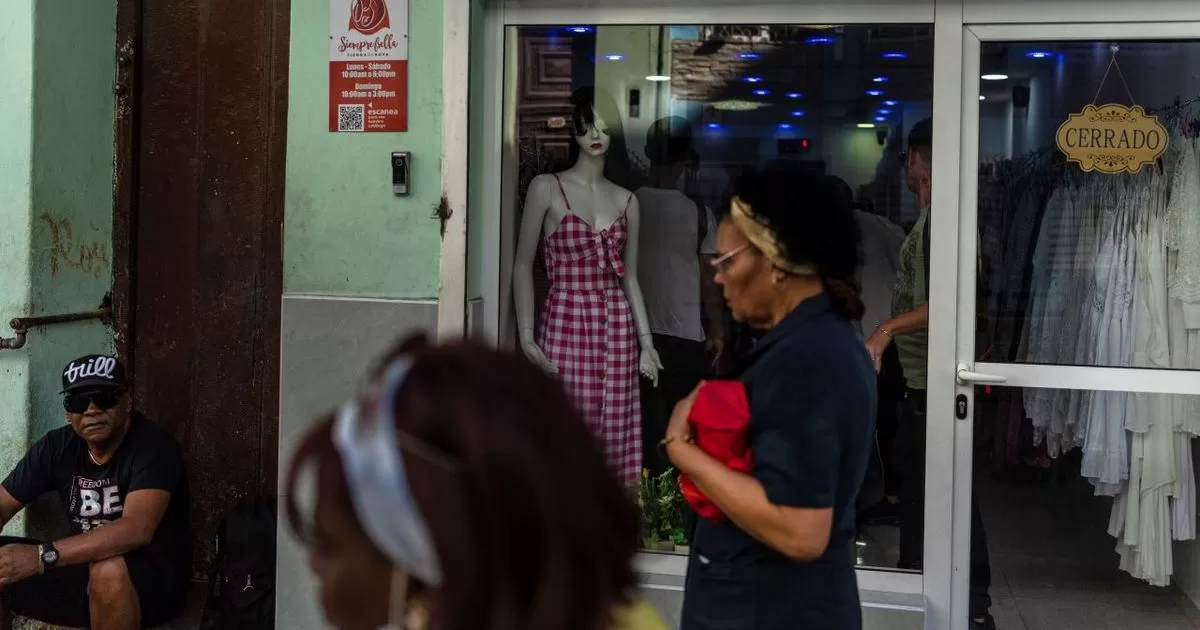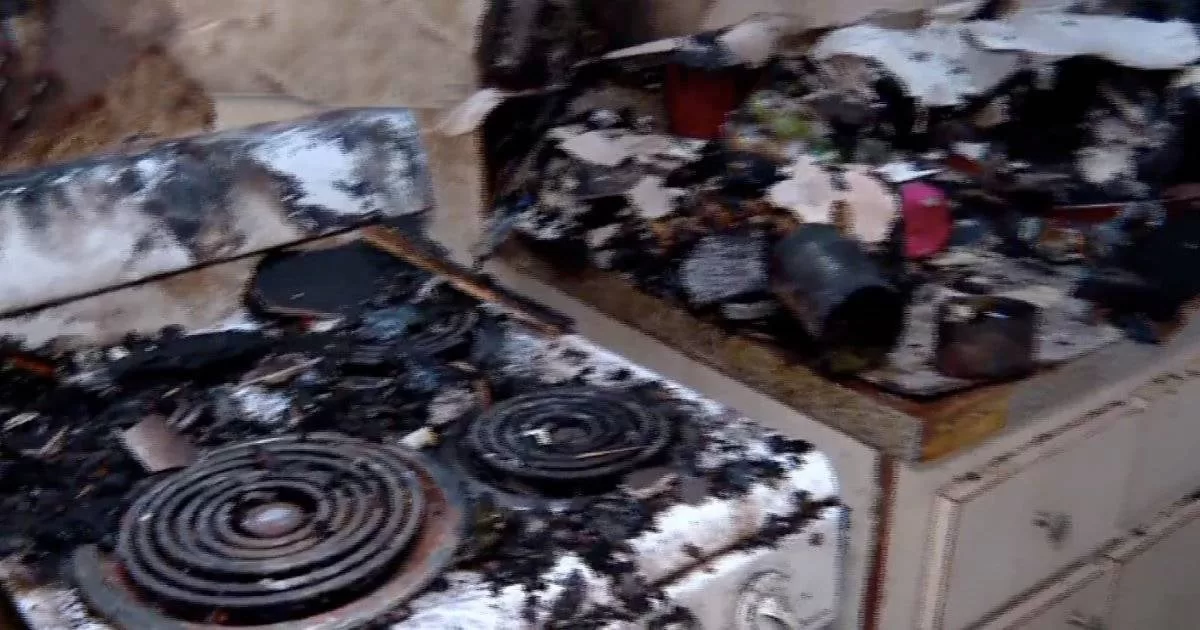HAVANA. -One warm morning in December 2021, let’s call him Adrián, a tall and strong guy who looks like a basketball forward, had met with several friends to open his new farm in a town on the outskirts of Havana. He had bought it at a bargain price during the hard months of the pandemic from a private farmer who intended to emigrate from the country. He invested almost $90,000 in renovating the ranch.
A brigade of bricklayers laid new floors, expanded the house, built a swimming pool, and built a ranch on a nearby promontory with an incredible view of the countryside. At that time, Adrián was happy. And he didn’t stop making plans. Near the national highway he had opened a country restaurant and planned to produce organic food on his rural estate.
Adrián had left Cuba in the mid-1990s. He opened a business and started a family in Europe. Twenty-one years later, he landed at the José Martí International Airport loaded with suitcases and gifts. He returned to the country from which he had emigrated, attracted by the siren song of the reestablishment of relations with the United States and moved by that speech by Obama in a Havana theater.
He thought that the Island would irreversibly opt for the market economy. “In 2014 to 2016, like many Cubans, I believed that things in Cuba were going to change radically. He envisioned the country opening Starbucks, McDonald’s and Apple stores. A lot of celebrities toured the city in old convertible cars and the Rolling Stones gave a concert in Havana,” Adrián recalls in a nostalgic tone.
“I wanted to share my successes with my family and friends on the island. I traveled to an intricate place in the province of Granma and brought my father and my relatives to the capital. I wanted them to manage the business I was planning to open. He had the support and advice of childhood friends. Everything was going so well that it scared me a little,” Adrián confesses.
With the arrival of the pandemic, he suffered his first setback. “They closed ‘la paladar’ (restaurant) and gave me a number eight (trap) for an issue with the property papers. I lost $70,000. But I was not discouraged. After the 9/11 protests, the government finally decided to authorize MSMEs. A couple of foreign partners and I opened one. Some of my Cuban friends were very pessimistic and tried to discourage me. I called them paranoid and told them that in business, those who take risks succeed.”
The chimera
“I started importing food, beer and whiskey. I opened a still life, then another, and I was scheduled to open a third. It employed 70 people who earned salaries between 30 and 40,000 pesos. But rampant corruption by state officials and restrictive measures approved by the government discourage good business performance. Due to the absence of a regulatory framework and the Bolshevik mentality of a lot of bureaucrats, it is practically impossible to manage a business without breaking the laws in Cuba,” says Adrián.
Rangel, owner of a garage dedicated to repairing and cleaning cars, affirms that there are “so many obstacles, most of them absurd, from the government that business owners are forced to break the rules if they want to get ahead. I’ll give you an example: I started the family business cleaning cars. Later, as things were going well, we decided to open an attached workshop to repair light vehicles. That unleashed a small storm. The ONAT (Tax Administration Office) and other authorities said it violated the law. With patience and money under the table, they finally granted me the license.”
“Something that in a normal country does not make sense. The space we use is that of our old house, converted into a garage and if we wanted to grow we did not harm anyone. On the contrary. We create new jobs and provide a service that the State does not provide. The government makes it very difficult for you. Any good idea you try to implement is killed. Starting to sell beers and snacks in the business was an odyssey. An expansion is a crime. The authorities see many private businesses as an enemy. Of course, the ventures of relatives of the government, former military personnel or Cubans living in the United States who ‘square the box’ (accept the conditions of the regime) with them, are allowed,” says Rangel.
The attempt is stressful
Silvio, owner of an entrepanes cafe, a boutique and a small market, explains that “it is stressful to run a business in Cuba. This venture is a joint venture between my Miami-based brother and me. We started with a hamburger restaurant and have been opening other locations in the same space. That expansion has unleashed a hunt by inspectors. The oldest in my family told me from the beginning not to open anything. The idea was to have economic support independent of the government that would allow us to access a good quality of life. My father reminded me that Fidel Castro closed all small businesses in 1968 and labeled individuals as alleged criminals. And Díaz-Canel is the continuity of those crazy ideas, the old man repeats to me.”
“Over time you realize that he is right. The regime allows us because, due to their inefficiency, they cannot provide those services. But they see us as subordinate to the State. Not as a private company that aims to generate wealth. They even have it stipulated in their laws that they will not allow enrichment. When they consider that we earn a lot of money, they unleash the dogs on us and open files to sanction you,” Silvio emphasizes.
Constant attacks
Yamila, owner of a SHEIN market and clothing store, says that the government’s “first declaration of war on MSMEs, non-agricultural cooperatives and the self-employed was when in January of last year they imposed a daily sales limit of 80,000 pesos. A more or less successful business sells two or three hundred thousand pesos in a day. Later came bankization and now the increase in taxes on finished products and the income of the workers we hire. They are very clever. Instead of deploying a police operation and confiscating your businesses, which could trigger international discredit, they attack you with the tariff weapon to suffocate your businesses and generate losses. Before, a worker paid 5 percent tax on his salary. Now he must pay 20 percent. That is, if you earn 30,000 pesos, which is nothing to write home about in Cuba, the Ministry of Finance takes 6,000 pesos from you.”
“And for the majority of small businesses that import goods that are not of interest to the government, taxes are raised by 50 percent. Is incredible. They attack private administrations that have created 1,600,000 jobs with 35% taxes on profits, another 10 percent tax on sales or services provided, a 5 percent tariff for the use of military force. work, pay one percent to support local governments and social security contributions equivalent to 14 percent of workers’ salaries. In addition, MSME owners have to pay up to 20 percent taxes on dividends. All those payments are to prevent you from making a lot of money. The Cuban government is allergic to wealth. Except it is for them,” Yamila concludes.
Recently, Juan Juan Almeida on his YouTube channel (Owner of the most successful private company in Cuba, escapes the island by boat – YouTube), interviewed Teófilo Luis Carmenate Peña, former president of Pirámide, a cooperative in the construction sector, who denounced state corruption and legal abuses to stop the rise of private enterprises.
A week ago, Adrián says, the inevitable happened. Sitting with a group of friends in the ranch of his farm on the outskirts of the city, he warned them that, due to so many obstacles and the increase in taxes applied by the government to MSMEs, at the beginning of the year he would close his businesses on the Island. . “It was hard. But they left me no choice.” To the pain of his soul, he had to put an end to his business adventure in Cuba.
Especial
@DesdeLaHabana



